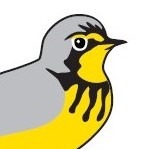Blog / eNews
It Takes a Village to Track a Curlew
The Long-billed Curlew project hit new heights this May with a very successful field season near Prince George, BC. A team from Bird Studies Canada visited the area to document the recently expanded range of these pioneer curlews, and to confirm their presence and breeding in the most northerly part of the species’ range.
Meet Plover Lover and Science Fair Champ Islay Graham
Islay Graham, age 13, first connected with Piping Plovers when visiting their nesting site at Sauble Beach, Ontario. She went on to complete a research project that swept up awards at regional and national science fairs! We noticed a lot of interest in response to the news stories about Islay, so we reached out to her to learn more.
A Love of Birds Takes Flight in the Heart of Toronto
The Toronto Bird Celebration’s goal is to increase people’s connection to nature – the first step towards making the city a welcoming oasis for birds. The third annual Celebration was the best-attended yet, making it clear that birds are finding their place in Toronto’s urban scene.
A New Report on the State of Canada’s Birds
The North American Bird Conservation Initiative (NABCI) has just released a new report on the state of Canada’s birds. It’s the second comprehensive assessment of the conservation status of birdlife in Canada.
Canada’s birds are warning us about the state of our natural world
Human activities have resulted in dramatic changes to Canada’s bird populations over the last 50 years. This is the conclusion of the second State of Canada’s Birds report, published today by the North American Bird Conservation Initiative in Canada (NABCI-Canada).
Students at 30 Schools Count Their Local Birds for Science
Bird Studies Canada’s Schoolyard Bird Blitz is an annual bird count taking place in schoolyards each May. Students across Canada explore their schoolyard, identify and count their local birds, and share their findings. Check out the highlights from the 2019 event!







